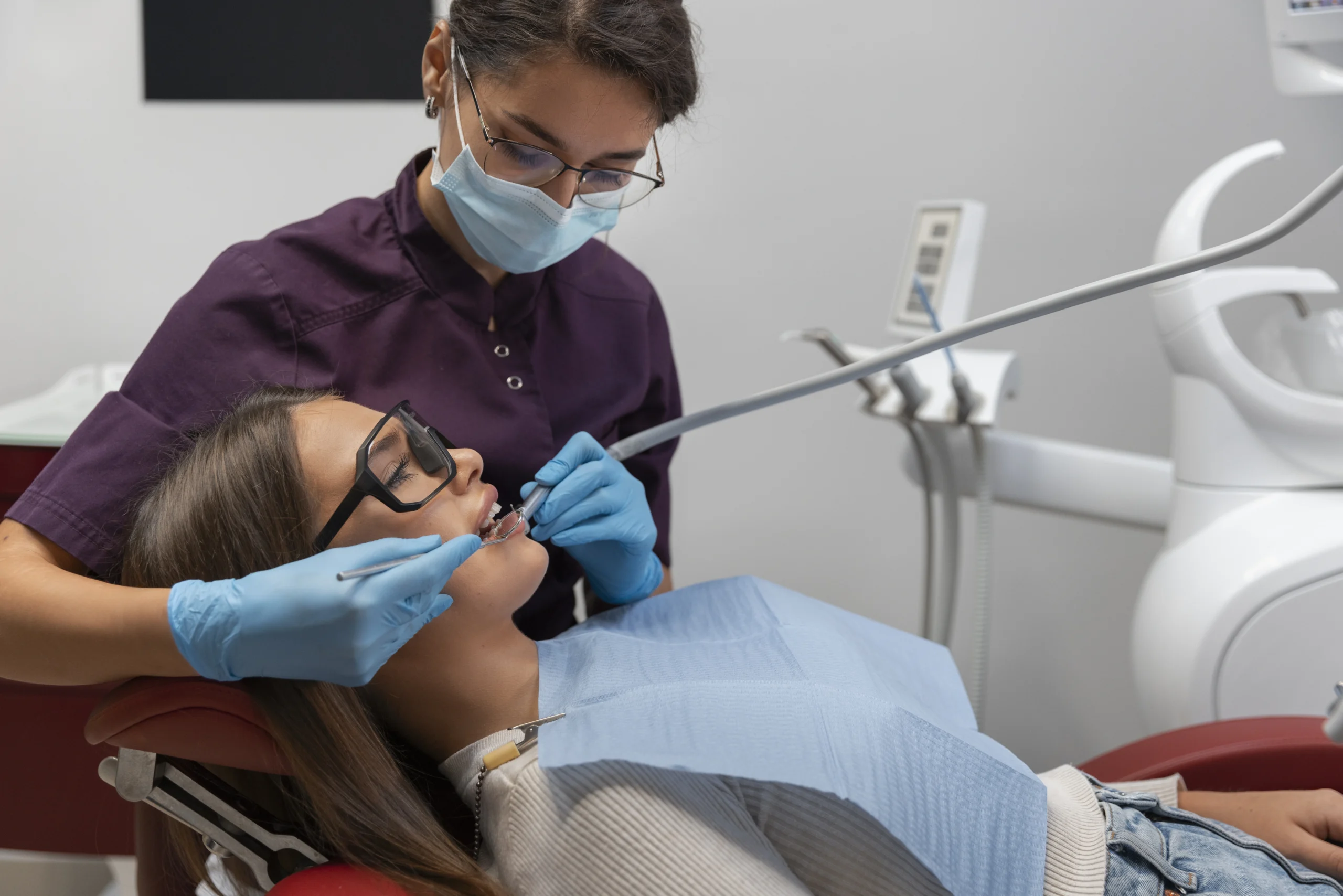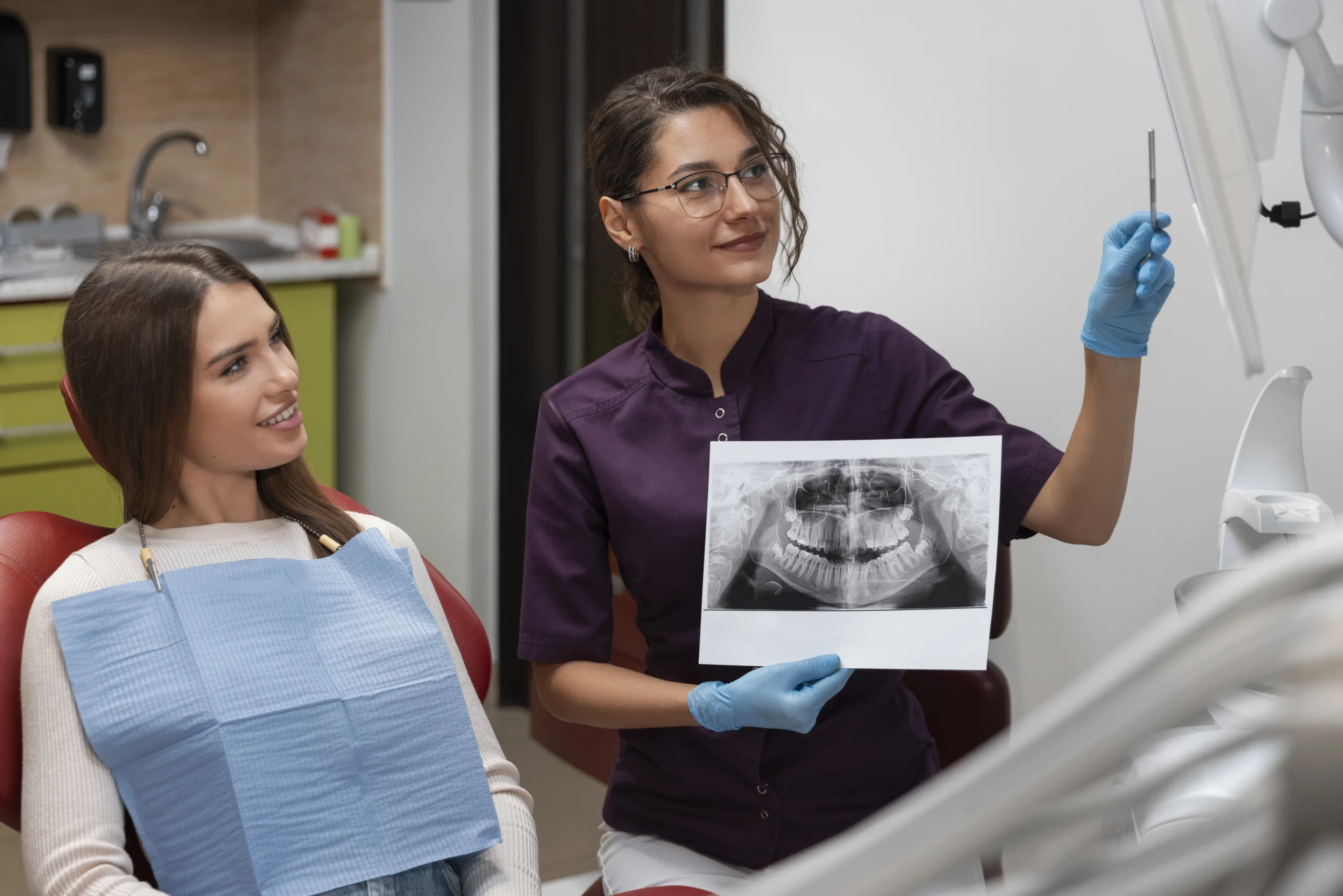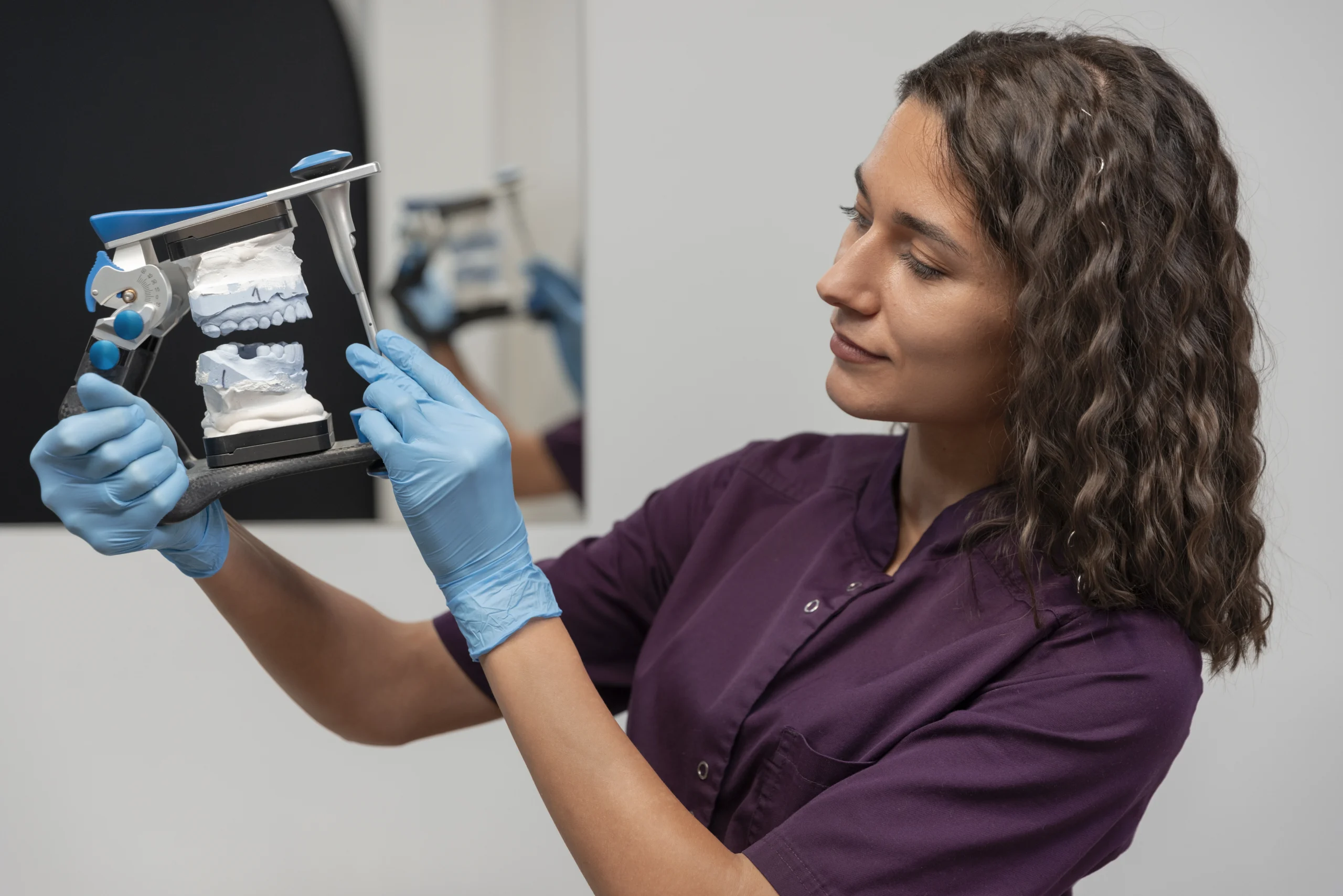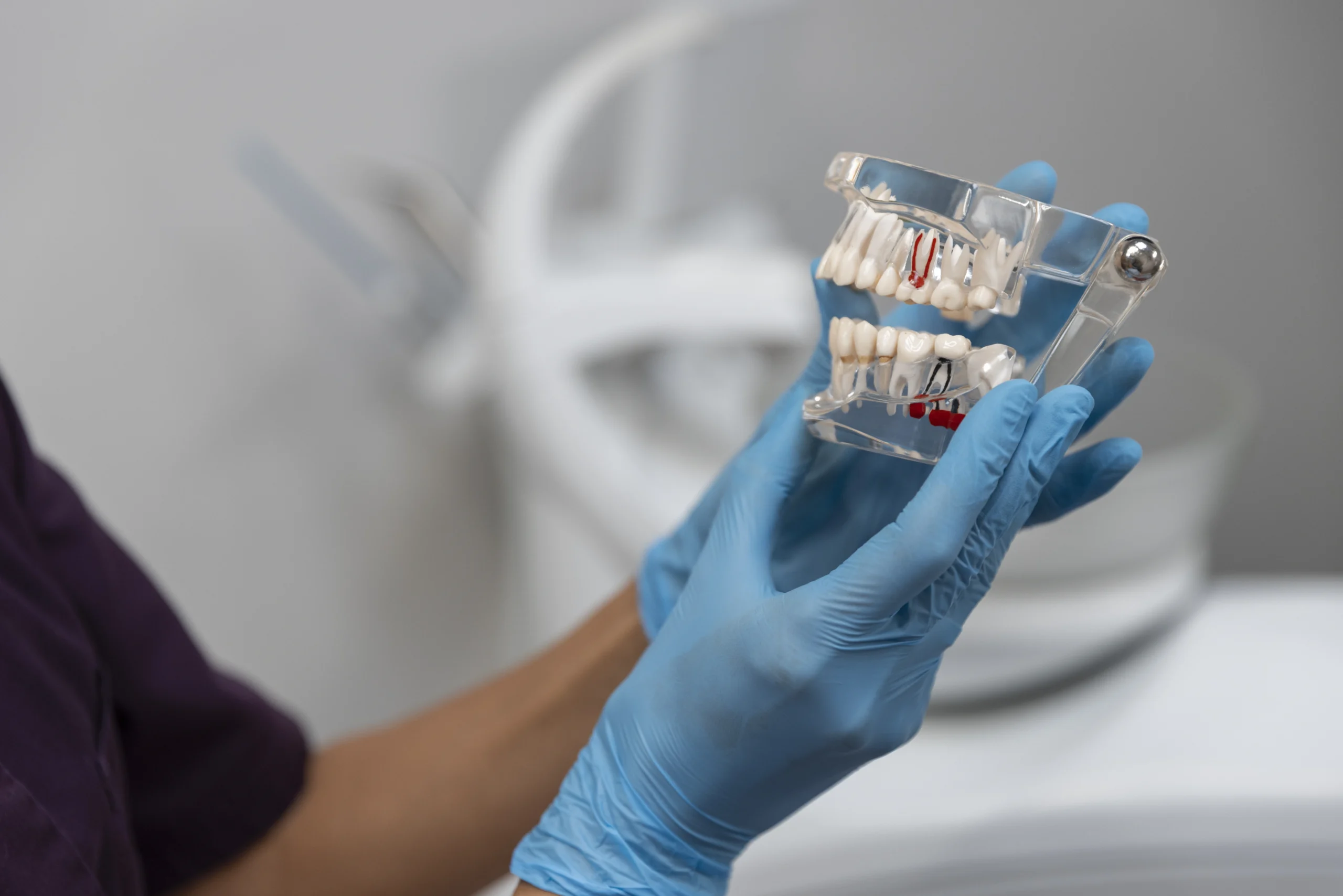




Malocclusion refers to a misalignment or incorrect positioning of the teeth and jaws. It can lead to several dental and functional problems, including difficulty chewing, speech issues, and an increased risk of tooth decay and gum disease. Diagnosing malocclusion early on is essential for preventing long-term damage and improving both the function and aesthetics of your smile.
At Dr. Sofia Hawelia’s clinic, malocclusion is diagnosed through comprehensive evaluations, which include clinical examinations, X-rays, and sometimes digital imaging to accurately assess the positioning of your teeth and jaws. By diagnosing malocclusion early, Dr. Sofia can provide personalized treatment plans that may involve orthodontic devices like braces or aligners to correct misalignments and prevent further complications.
Malocclusion is a condition where the teeth or jaws do not align properly. This misalignment can be classified into different types, such as Class I (slight misalignment), Class II (overbite), and Class III (underbite).

Dr. Sofia conducts a thorough examination that includes taking X-rays, digital scans, and physical assessments to determine the extent of malocclusion and recommend the best treatment options.
Malocclusion may be suspected if you experience difficulty chewing, biting, or speaking clearly. Misalignment of the teeth or an uneven bite may also be visible. Dr. Sofia will perform a thorough examination to confirm if malocclusion is present.
Yes, malocclusion can lead to pain in the jaw, headaches, and discomfort while chewing. It can also contribute to TMJ disorders, which affect the jaw joint and cause further pain and stiffness.
Treatment options depend on the severity of the misalignment. Braces, aligners, and in some cases, jaw surgery, may be recommended. Dr. Sofia will tailor a treatment plan based on your specific needs.
It is generally recommended to visit the dentist every six months for routine check-ups and cleanings. However, your dentist may suggest more frequent visits based on your oral health needs.
It is generally recommended to visit the dentist every six months for routine check-ups and cleanings. However, your dentist may suggest more frequent visits based on your oral health needs.
We always take care of your smile
+91 9875557353
